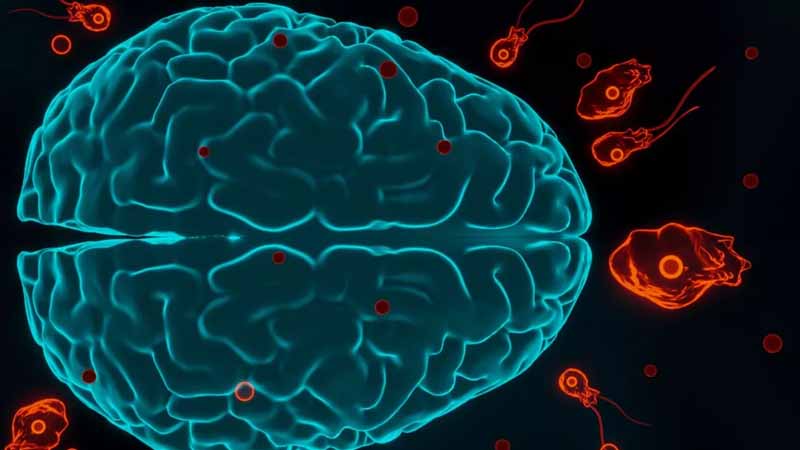
(Image: Getty Images/iStockphoto)
A Missouri man has been hospitalized with a rare and often deadly brain infection linked to the so-called “brain-eating amoeba,” state health officials confirmed this week.
The Missouri Department of Health and Senior Services (DHSS) announced Wednesday that the patient, an adult male, is being treated in intensive care after contracting primary amebic meningoencephalitis (PAM). The disease is caused by Naegleria fowleri, a microscopic amoeba that destroys brain tissue and is almost always fatal.
While the exact source of exposure has not yet been determined, investigators believe the man was recently water-skiing at the Lake of the Ozarks, a popular summer recreation spot. This suspected exposure comes just weeks after similar cases across the U.S. including the deaths of a 71-year-old Texas woman and 12-year-old Jaysen Carr of South Carolina.
Health officials emphasized that no other infections have been reported in Missouri at this time.

What is Naegleria fowleri?
Commonly found in warm freshwater lakes, rivers, and hot springs, Naegleria fowleri thrives in water temperatures above 77°F and becomes most active during the summer months. The amoeba infects people when contaminated water enters through the nose, often during activities like swimming, diving, or water-skiing. From there, it travels to the brain, causing PAM a rapidly progressing and typically fatal illness.
Symptoms of PAM
According to the Centers for Disease Control and Prevention (CDC), early symptoms typically begin about five days after exposure. They include headache, fever, nausea, and vomiting. The infection quickly worsens, leading to confusion, seizures, coma, and almost certain death. Survival is extremely rare, with only a handful of documented cases worldwide.
Recent U.S. Cases
In June, a Texas woman contracted the amoeba after using tap water from an RV system for nasal irrigation. She developed severe neurological symptoms and died shortly after. In July, 12-year-old Jaysen Carr of South Carolina died two weeks after swimming and boating in Lake Murray. His father, Clarence Carr, has since called for more awareness and better public health reporting of amoeba-related infections.
Missouri Cases Are Rare
Since 1962, only 167 cases of PAM have been reported in the U.S. Missouri has recorded just three cases since 1983, two of which were locally acquired.
The DHSS urged swimmers to take precautions, such as avoiding warm, shallow waters, using nose clips, and preventing water from entering the nose. Officials stressed that while the amoeba exists in many freshwater bodies, infections remain extremely rare.
Would you like me to make this rewrite more medical/scientific in tone for awareness, or more public-interest style for general readers?
READ MORE
- “A Foreign Influence Operation”: JD Vance Explodes Over Politico Report Targeting Trump Peace Envoy Steve Witkoff
- Katy Perry Seeks $5 Million in Damages After Judge Rules Westcott Was “Coherent, Engaged, Lucid, and Rational” in Mansion Deal
- Kate Middleton’s “Outlook Has Changed” as She Makes Intentional Return to Public Duties After Cancer Treatment
- “Instead of Being a Point of Pride”: Trump Administration Seizes Control of D.C.’s Union Station After Officials Heckled
- Illinois Man Accused of Secretly Giving Girlfriend Abortion Pills, Causing Miscarriage


